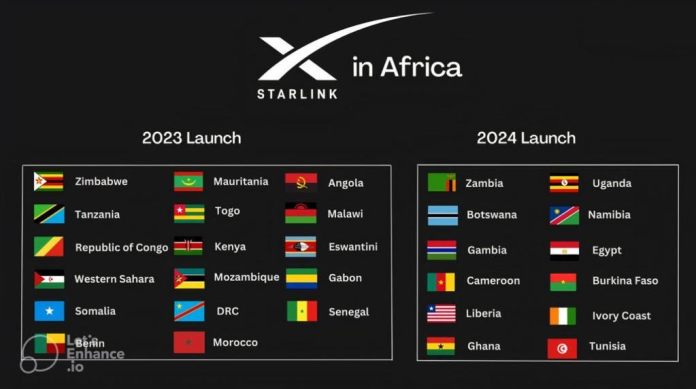

In recent years, the Gambia has been experiencing a rapid growth in internet usage, driven by the increasing penetration of smartphones and the expansion of mobile broadband networks. However, the country still faces significant challenges in terms of internet connectivity, with many rural areas lacking access to reliable and affordable broadband services. This digital divide not only hampers the country’s socio-economic development but also limits the opportunities for Gambians to participate in the global digital economy.
In this context, the launch of SpaceX’s Starlink satellite internet service has the potential to transform Gambia’s internet landscape and boost its economic growth. Starlink, a project by Elon Musk’s SpaceX, aims to provide global internet coverage through a constellation of thousands of low Earth orbit (LEO) satellites. The service promises to deliver high-speed, low-latency broadband connectivity to even the most remote and underserved areas of the world.
For Gambia, the arrival of Starlink could be a game-changer in bridging the digital divide and fostering digital inclusion. By providing high-speed internet access to rural communities, the satellite-based service could help improve the quality of education, healthcare, and other essential services, as well as create new opportunities for entrepreneurship and innovation. Moreover, with better connectivity, Gambians would be able to access a wealth of online resources and services, from e-commerce platforms to e-government portals, further enhancing their digital skills and capabilities.
One of the key advantages of Starlink’s satellite-based system is its ability to bypass the traditional challenges associated with terrestrial infrastructure, such as the high cost of laying fiber-optic cables and the difficulties in reaching remote or inaccessible areas. This makes it particularly well-suited for countries like Gambia, where the existing telecommunications infrastructure is limited and unevenly distributed. Furthermore, the low-latency nature of LEO satellites ensures that users will experience minimal delays in data transmission, making the service suitable for a wide range of applications, from video conferencing to online gaming.
The potential economic benefits of Starlink for Gambia are significant. Improved internet connectivity can help drive productivity gains across various sectors of the economy, from agriculture to manufacturing and services. For instance, farmers could use digital tools and platforms to access real-time market information, optimize their production processes, and reduce post-harvest losses. Similarly, small and medium-sized enterprises (SMEs) could leverage e-commerce platforms to expand their customer base and tap into new markets, both domestically and internationally.
Moreover, the increased availability of affordable and reliable broadband services could help attract foreign investment and stimulate the growth of the country’s burgeoning information and communications technology (ICT) sector. This, in turn, could create new job opportunities and contribute to the development of a skilled workforce, capable of competing in the global digital economy.
However, the successful implementation of Starlink in Gambia will require close collaboration between the government, the private sector, and international partners. Key challenges that need to be addressed include the development of supportive regulatory frameworks, the promotion of digital literacy and skills, and the provision of affordable devices and equipment. Additionally, efforts should be made to ensure that the benefits of improved internet connectivity are distributed equitably across the population, with a particular focus on marginalized and vulnerable groups.
In conclusion, the introduction of Starlink in Gambia holds great promise for the country’s internet connectivity and economic growth. By providing high-speed, low-latency broadband services to even the most remote areas, the satellite-based system could help bridge the digital divide, enhance digital inclusion, and unlock new opportunities for socio-economic development. However, realizing this potential will require concerted efforts from all stakeholders, as well as a long-term vision and commitment to building a more connected and prosperous Gambia.


